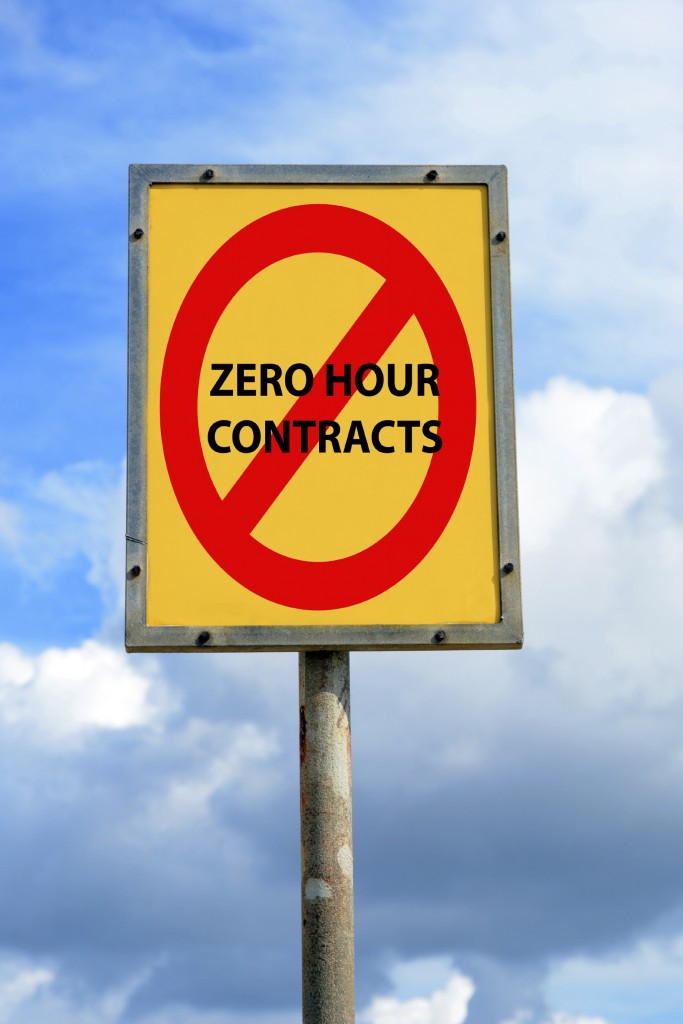The snappily entitled “Small Business, Enterprise and Employment Bill 2014 – 2015”, which was recently being debated by the House of Commons and House of Lords, prohibits the use of exclusivity clauses within zero hours contracts.
The Government’s concern is that employers who include a clause in their zero hours contracts which prevent a worker from seeking work elsewhere, when the employer is not obliged to provide any work or pay, puts the worker in a difficult position.
As part of its continued crack down of zero hours contracts, the Government sought views from individuals, businesses, trade unions, local government and trade bodies as to the extent of the proposed ban of exclusivity clauses within zero hours contracts and how to prevent employers avoiding the ban.
As a result of the responses received, the Government has issued draft regulations (Zero Hours Workers (Exclusivity Terms) Regulations 2015) which state that:
- Exclusivity clauses will be banned where a worker works less than a set number of hours each week or earns less than a set amount each week;
- Anti-avoidance of the ban is unlawful;
- Zero hours workers will be able to claim compensation at an Employment Tribunal for the breach of the exclusivity ban or the anti-avoidance provisions; and
- Employment Tribunals will have the ability to issue financial penalties to employers who have breached the ban or the anti-avoidance provisions.
Unfortunately, these draft regulations do not specify the level of pay or number of hours a worker has to earn/work each week in order to fall outside the scope of the regulations. What is clear, however, is that workers with high hourly rates of pay (the current proposal is £20 per hour or more), even if they only work a few hours, will fall outside of the regulations.
If the draft regulations are approved, the Government has also stated that it will issue further information, advice and guidance in relation to zero hours contracts and their use.
The draft Bill and Regulations will not become before the General Election. However, and irrespective of the outcome to the General Election, some form of restriction on the use of zero hours contracts, due to their general unpopularity, is very likely.
Action Point:
We suggest, therefore, that you review your current zero hours contracts now highlighting any exclusivity clauses so these contracts can be amended accordingly.
If you would like any assistance with this exercise or if you have any other queries, please do not hesitate to contact the Employment Team.

